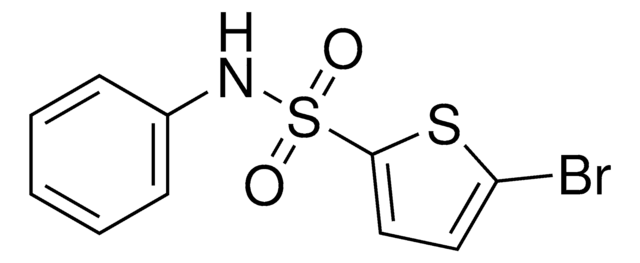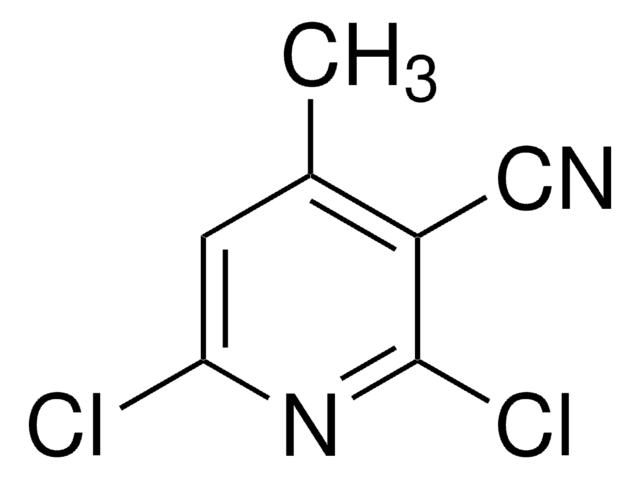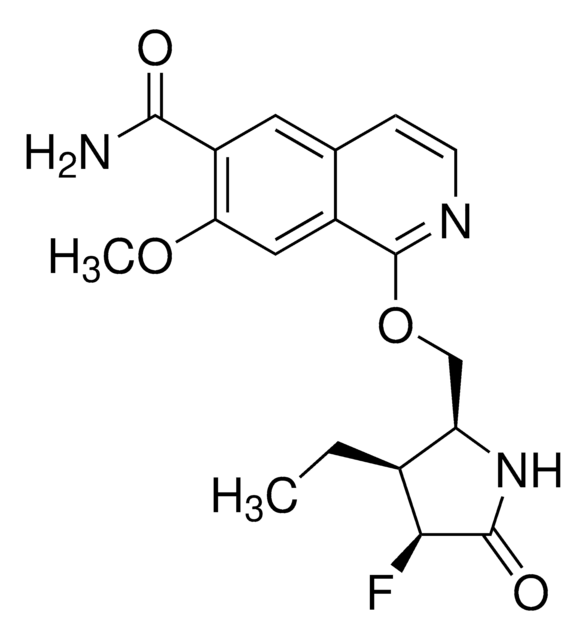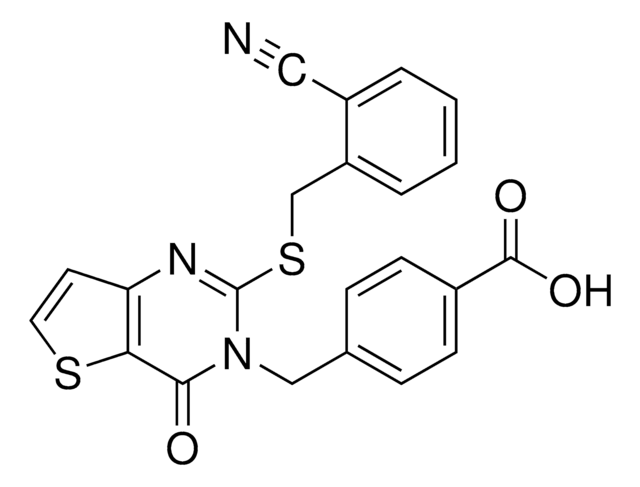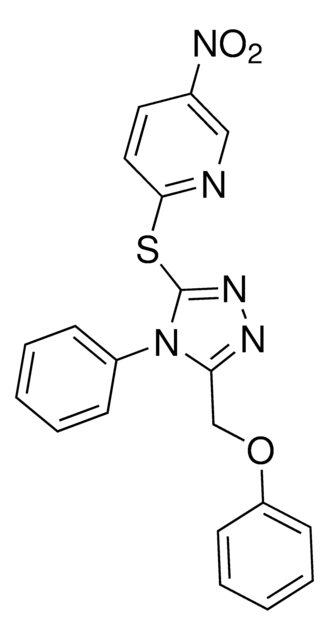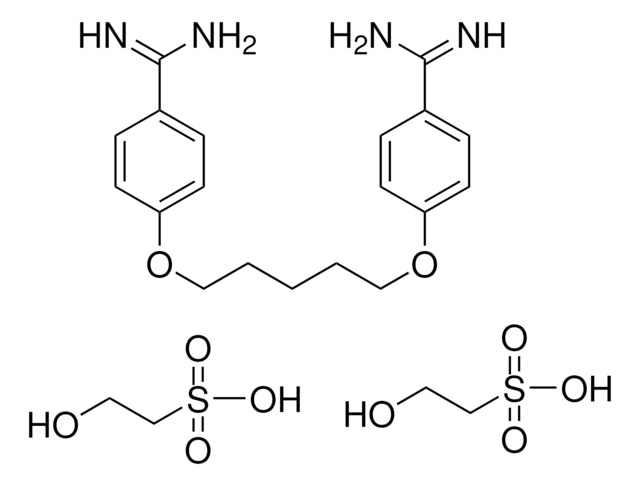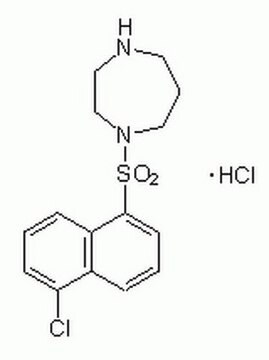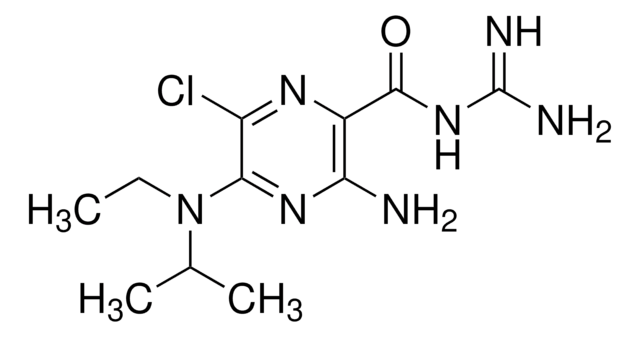SML2242
FTBMT
≥98% (HPLC)
Synonym(s):
4-[3-[[3-Fluoro-5-(trifluoromethyl)phenyl]methyl]-5-methyl-1H-1,2,4-triazol-1-yl]-2-methylbenzamide
Sign Into View Organizational & Contract Pricing
All Photos(1)
About This Item
Empirical Formula (Hill Notation):
C19H16F4N4O
CAS Number:
Molecular Weight:
392.35
UNSPSC Code:
12352200
Recommended Products
Assay
≥98% (HPLC)
form
powder
color
white to beige
solubility
DMSO: 2 mg/mL, clear
storage temp.
2-8°C
SMILES string
NC(C1=CC=C(N2C(C)=NC(CC3=CC(F)=CC(C(F)(F)F)=C3)=N2)C=C1C)=O
Biochem/physiol Actions
FTBMT is an orally available, selective and potent agonist of GPR52. It exhibits antipsychotic and procognitive properties without causing catalepsy in rodents. FTBMT improves recognition memory in a novel object recognition test and mitigates MK-801-induced working memory deficits in a radial arm maze test in rats.
Storage Class Code
11 - Combustible Solids
WGK
WGK 3
Flash Point(F)
Not applicable
Flash Point(C)
Not applicable
Choose from one of the most recent versions:
Certificates of Analysis (COA)
Lot/Batch Number
Sorry, we don't have COAs for this product available online at this time.
If you need assistance, please contact Customer Support.
Already Own This Product?
Find documentation for the products that you have recently purchased in the Document Library.
Kazuyuki Tokumaru et al.
Bioorganic & medicinal chemistry, 25(12), 3098-3115 (2017-04-24)
G protein-coupled receptor 52 (GPR52) agonists are expected to improve the symptoms of psychiatric disorders. During exploration for a novel class of GPR52 agonists with good pharmacokinetic profiles, we synthesized 4-(3-(3-fluoro-5-(trifluoromethyl)benzyl)-5-methyl-1H-1,2,4-triazol-1-yl)-2-methylbenzamide (4u; half maximal effective concentration (EC50)=75nM, maximal response (Emax)=122%)
Keiji Nishiyama et al.
The Journal of pharmacology and experimental therapeutics, 363(2), 253-264 (2017-08-31)
GPR52 is a Gs-coupled G protein-coupled receptor that is predominantly expressed in the striatum and nucleus accumbens (NAc) and was recently proposed as a potential therapeutic target for schizophrenia. In the current study, we investigated the in vitro and in
Our team of scientists has experience in all areas of research including Life Science, Material Science, Chemical Synthesis, Chromatography, Analytical and many others.
Contact Technical Service